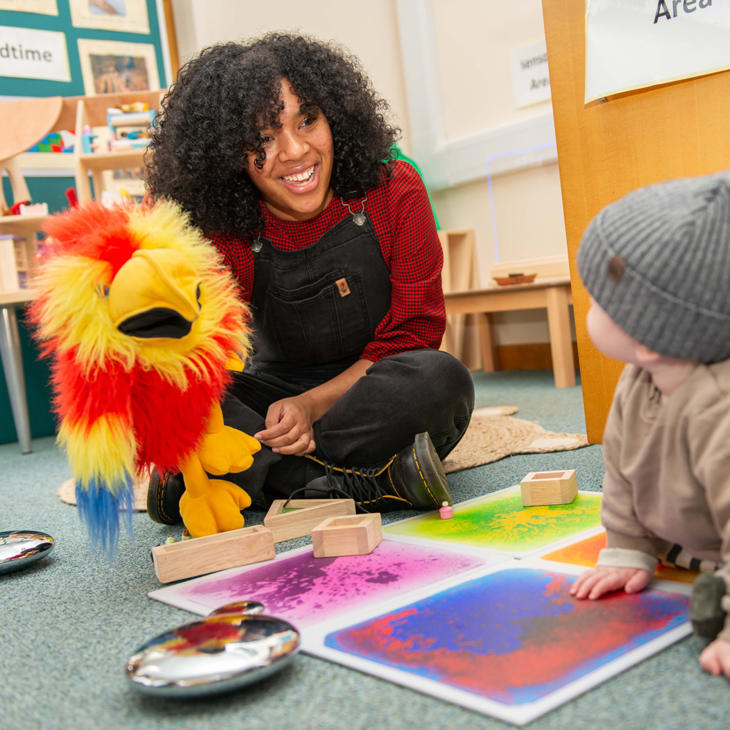The Rise of Play-Based Learning
For years, there’s been a shift away from rigid, academic-focused preschool curriculums towards a more child-centered approach. Play-based learning is now widely recognized as a crucial element in early childhood development. This approach emphasizes hands-on activities, imaginative play, and exploration, allowing children to learn through discovery and interaction. Rather than rote memorization, children are encouraged to problem-solve, collaborate, and express themselves creatively. The focus is on fostering a love of learning, rather than pushing specific academic milestones too early.
Incorporating Technology Responsibly
Technology is no longer a luxury in early childhood education; it’s a tool that, when used appropriately, can significantly enhance the learning experience. Interactive whiteboards, educational apps, and digital storytelling platforms offer engaging ways to introduce new concepts and reinforce learning. However, the key here is responsible integration. The emphasis should remain on balanced learning, ensuring ample time for hands-on activities and social interaction, with technology used as a supplement, not a replacement for these essential elements. The focus is on selecting age-appropriate apps and software that align with learning goals and are designed for playful exploration.
Focus on Social-Emotional Learning (SEL)
Recognizing the importance of emotional intelligence and social skills, many early childhood programs are prioritizing Social-Emotional Learning (SEL). SEL focuses on developing children’s self-awareness, self-regulation, social awareness, relationship skills, and responsible decision-making. This involves teaching children how to manage their emotions, build healthy relationships, and navigate social situations effectively. Activities might include mindfulness exercises, collaborative projects, and discussions about feelings and emotions. The goal is to equip children with the social and emotional tools they need to succeed in school and beyond.
Outdoor Learning and Nature-Based Education
There’s a growing recognition of the benefits of outdoor learning. Spending time in nature has been shown to improve children’s physical health, cognitive development, and overall well-being. Nature-based education incorporates outdoor play, exploration, and hands-on activities in natural settings. This might involve gardening, nature walks, building forts, or simply observing the natural world. These experiences offer unique learning opportunities and foster a connection with the environment, encouraging a sense of responsibility and stewardship towards nature.
Personalized Learning and Differentiated Instruction
Every child learns at their own pace and in their own way. The trend towards personalized learning recognizes this and emphasizes tailoring instruction to meet the individual needs of each child. This involves assessing children’s strengths and weaknesses and providing targeted support and challenges. Differentiated instruction allows teachers to adapt their teaching methods and materials to cater to diverse learning styles and abilities, ensuring that every child can access and engage with the curriculum effectively.
Emphasis on Inclusive Practices
Creating inclusive classrooms where all children feel welcome, respected, and valued is a paramount goal in modern early childhood education. This involves adapting teaching methods to support children with diverse abilities and backgrounds, including children with disabilities, children from different cultural backgrounds, and children who speak different languages. Inclusive practices emphasize celebrating diversity, fostering understanding, and providing equitable access to learning opportunities for all children, regardless of their individual circumstances.
The Growing Importance of Parental Involvement
Successful early childhood education requires a strong partnership between educators and parents. Many programs are actively seeking to engage parents in their children’s learning journey. This might involve regular communication, parent-teacher conferences, family events, and opportunities for parents to volunteer in the classroom. A strong home-school connection ensures consistency in learning and helps children feel supported and encouraged in their educational pursuits. Open communication creates a stronger foundation for a child’s growth and development.
Focus on Early Literacy Development
Building a strong foundation in literacy is crucial for a child’s future academic success. Many early childhood programs are prioritizing early literacy development through engaging activities such as reading aloud, storytelling, writing workshops, and interactive games. These activities help children develop phonemic awareness, vocabulary, and a love of reading, preparing them for the challenges of formal literacy instruction in later grades. Creating a literacy-rich environment from an early age sets a solid base for future success.
Utilizing Assessment for Growth, Not Just Grades
While assessment is important in early childhood education, the emphasis is shifting from high-stakes testing and letter grades to more holistic and formative assessment methods. These assessments focus on observing children’s progress, identifying their strengths and challenges, and using that information to inform instruction and support individual learning needs. The goal is to use assessments as tools for growth and improvement, rather than simply measuring a child’s performance against a standardized benchmark. The focus is on understanding the child’s development journey.
Professional Development for Educators
Early childhood educators are increasingly seeking opportunities for professional development to stay abreast of the latest research and best practices. This includes attending workshops, conferences, and pursuing advanced degrees to enhance their teaching skills and knowledge. Investing in the professional development of educators is a crucial step in ensuring high-quality early childhood education for all children. A well-trained and knowledgeable educator is the cornerstone of a successful program. Read more about early childhood education programs.


![[Show Name] Gripping From Beginning to End [Show Name] Gripping From Beginning to End](https://images.unsplash.com/photo-1596405367208-63505402f113?fm=jpg&q=60&w=3000&ixlib=rb-4.1.0&ixid=M3wxMjA3fDB8MHxzZWFyY2h8MTh8fGhpZ2glMjBwb3RlbnRpYWwlMjB0ZWxldmlzaW9uJTIwc2hvd3xlbnwwfDB8MHx8fDI%3D)

![Best Family Law Attorney in [Your City/Region] Best Family Law Attorney in [Your City/Region]](https://images.unsplash.com/photo-1731955418581-5ba6827ca5ff?fm=jpg&q=60&w=3000&ixlib=rb-4.1.0&ixid=M3wxMjA3fDB8MHxzZWFyY2h8MTN8fGJlc3QlMjBmYW1pbHklMjBsYXclMjBhdHRvcm5leSUyMG5lYXIlMjBtZXxlbnwwfDB8MHx8fDI%3D)






